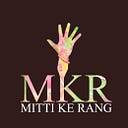HIV/AIDS and COVID — 19
While 2020 shall always be remembered as the year of COVID and the deadly impact it has been having on all aspects of human life. We have the virus in front of us, but we still haven’t completely understood the virus, its manifestation, or have a cure in hand. Governments must respect the human rights and dignity of people affected by COVID-19. The experiences learned from the HIV epidemic can be applied to the fight against COVID-19.
COVID-19 is an infectious disease caused by a newly discovered strain of coronavirus, a type of virus known to cause respiratory infections in humans. This new strain was unknown before December 2019, when an outbreak of pneumonia of unidentified cause. The virus can cause a range of symptoms, ranging from mild illness to pneumonia. Symptoms of the disease are fever, cough, sore throat, and headaches. In severe cases, difficulty in breathing and deaths can occur.
On the other hand, HIV causes AIDS and interferes with the body’s ability to fight infections. The virus can be transmitted through contact with infected blood, semen, or vaginal fluids. HIV infects a type of white blood cell in the body’s immune system called a T-helper cell (also called a CD4 cell). These vital cells keep us healthy by fighting off infections and diseases. HIV cannot reproduce on its own. Instead, the virus attaches itself to a T-helper cell and fuses with it.
The current outbreak of novel coronavirus has prompted an upsurge of fear, stigma, and virus-shaming that is all too familiar to people living with HIV. For health care providers and other front-line professionals serving people with HIV, this means not only the added burden of managing the outbreak among their patients and clients but also the opportunity to alleviate panic and keep those they serve well-informed.
How COVID-19 affects people living with HIV is not fully known yet. At present, there is no evidence to suggest that there is an increased risk of infection and increased severity of illness for people living with HIV. However, people living with HIV who are not on treatment or who are not virally suppressed may have a compromised immune system (measured by a low CD4 count) that makes them vulnerable to opportunistic infections and more severe illnesses.
It is thought that people living with HIV who have achieved viral suppression through antiretroviral treatment and do not have a low CD4 count will be affected by COVID-19 in a similar way to what a person not living with HIV would be, based on other coronavirus-caused disease outbreaks such as SARS (caused by SARS-CoV-1) and MERS (caused by MERS-CoV), where only a few cases of mild disease among people living with HIV were reported.
People with HIV appear to have a slightly increased risk of dying from COVID-19. People with HIV who have underlying health conditions such as obesity, poorly controlled diabetes, and high blood pressure appear to be at higher risk as well. In general, the most important risk factors for death from COVID-19 are old age, an organ transplant, and a recent diagnosis of cancer of the blood. People with CD4 cell counts below 50 or an opportunistic illness in the last six months may choose to take extra precautions to protect themselves from infection.
While the physical dangers and threats are present, the societal stigma associated with HIV/AIDs hasn’t been removed yet, and while they are already fighting one battle, being infected with COVID-19 makes it difficult to even fight the battle.
Contributed by Ishwari content writer at Mitti Ke Rang
Our Social Media:
Website: https://www.mittikerang.org/
LinkedIn — https://www.linkedin.com/in/mitti-ke-rang-mkr-81b230120/
Twitter: https://twitter.com/mitikerang?s=08
Instagram: https://www.instagram.com/mitti_ke_rang?r=nametag
Facebook: https://www.facebook.com/Mitikerang/
YouTube:
